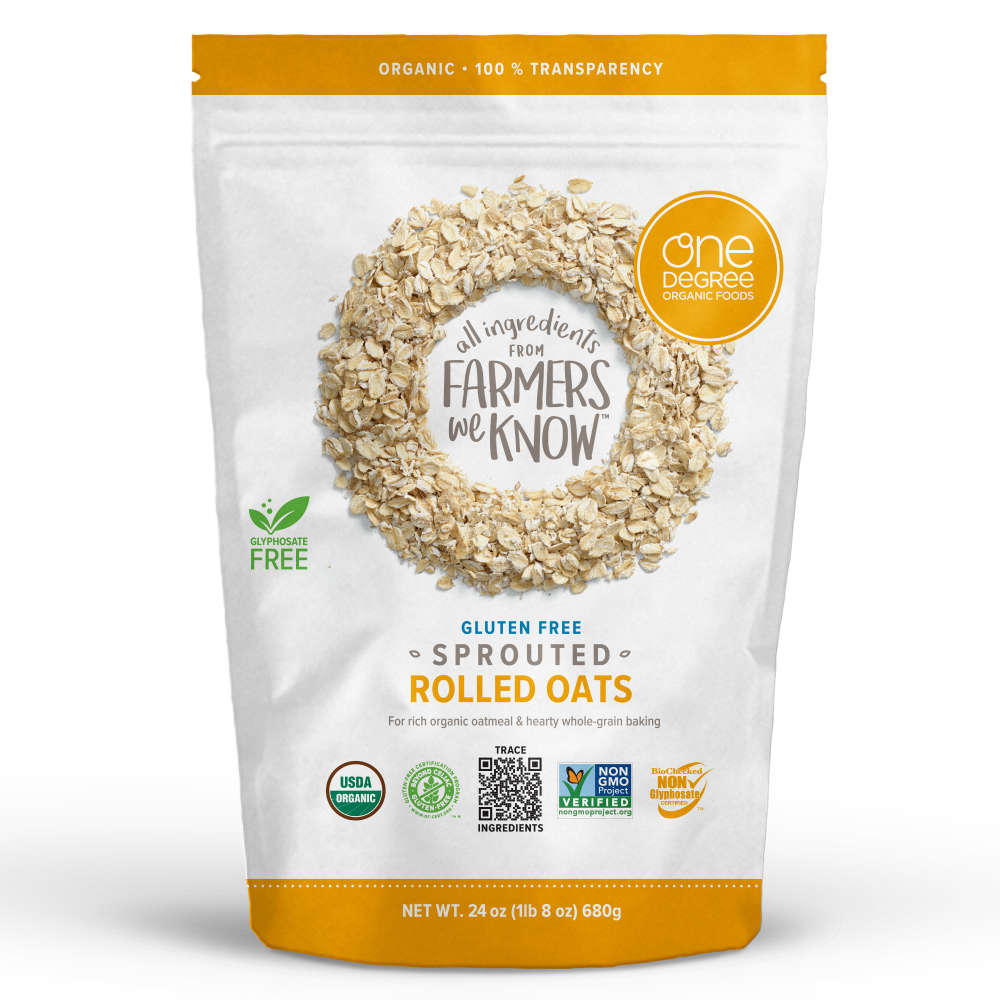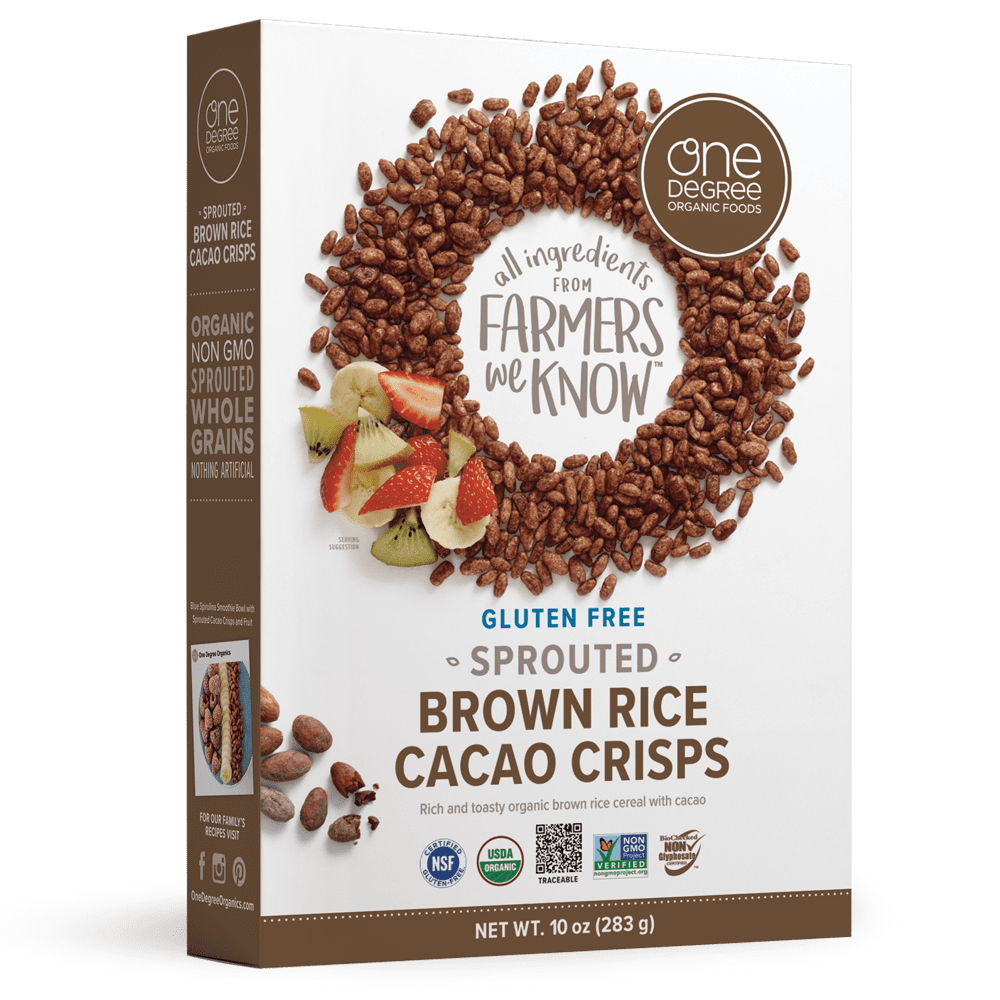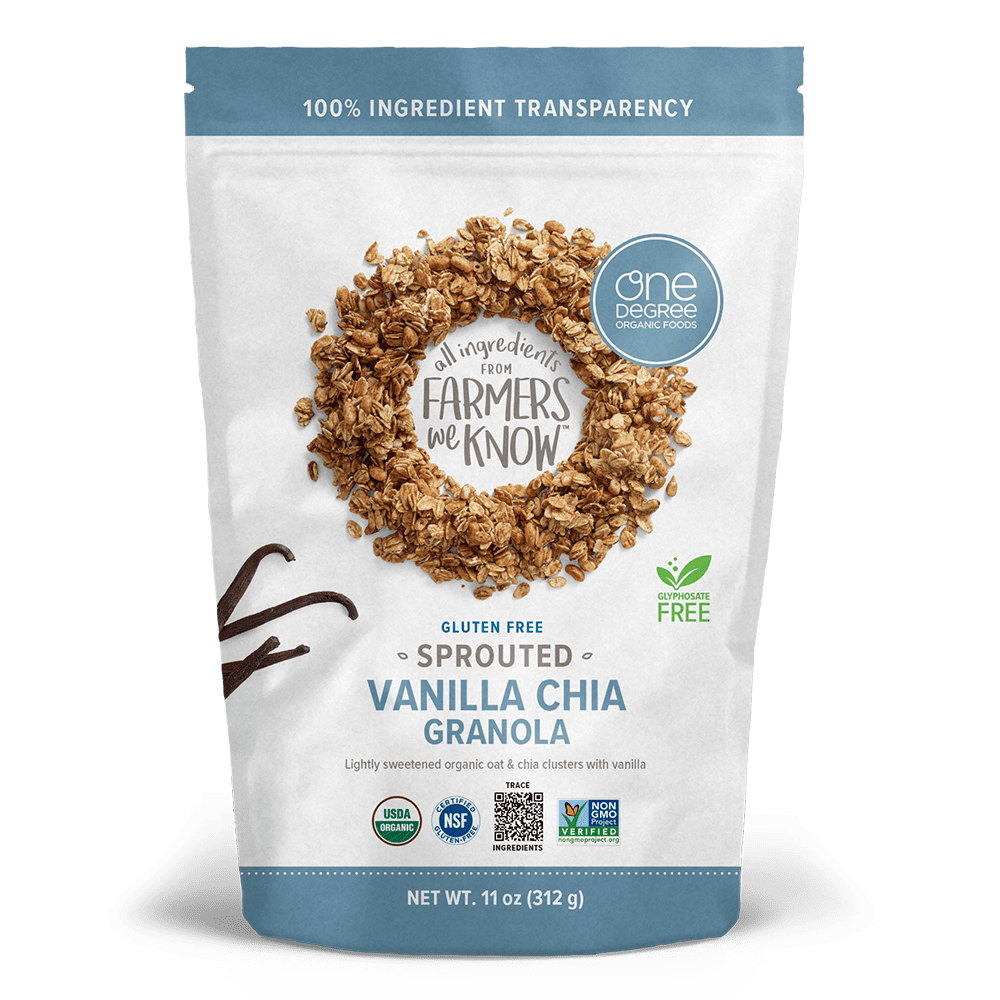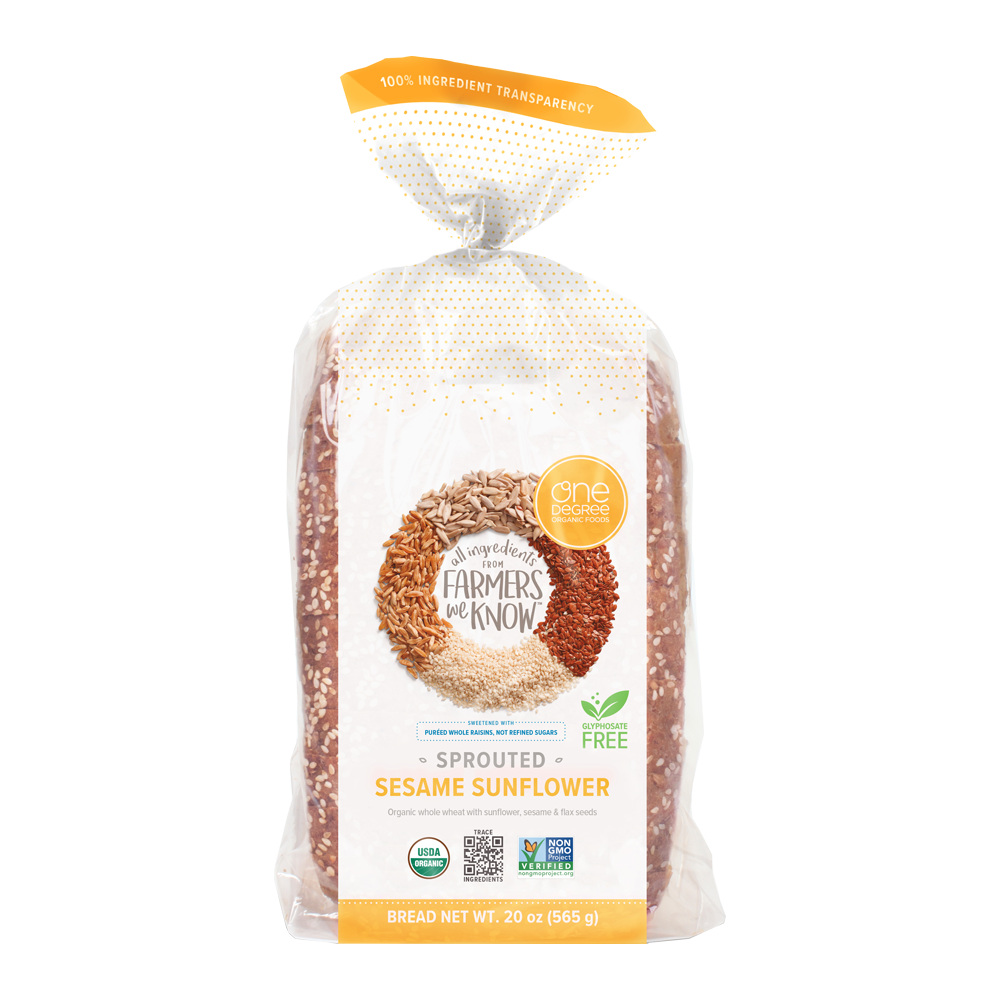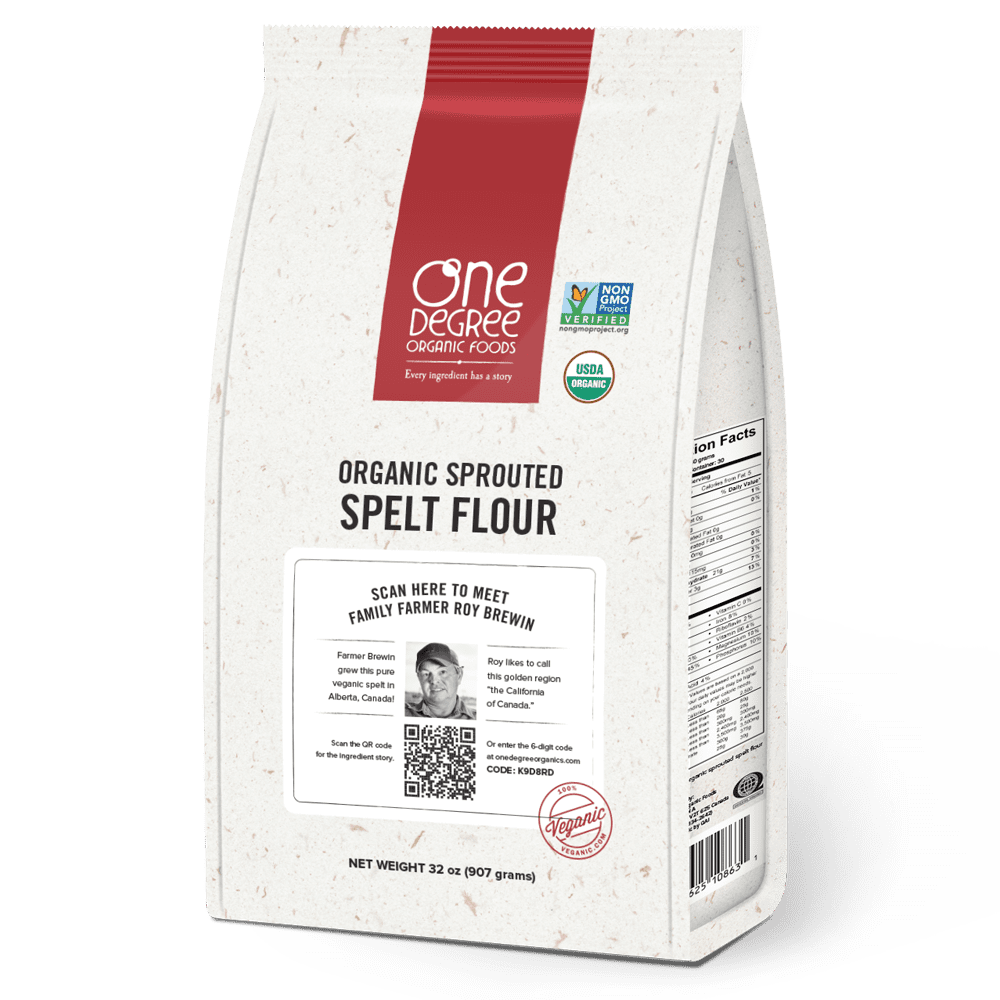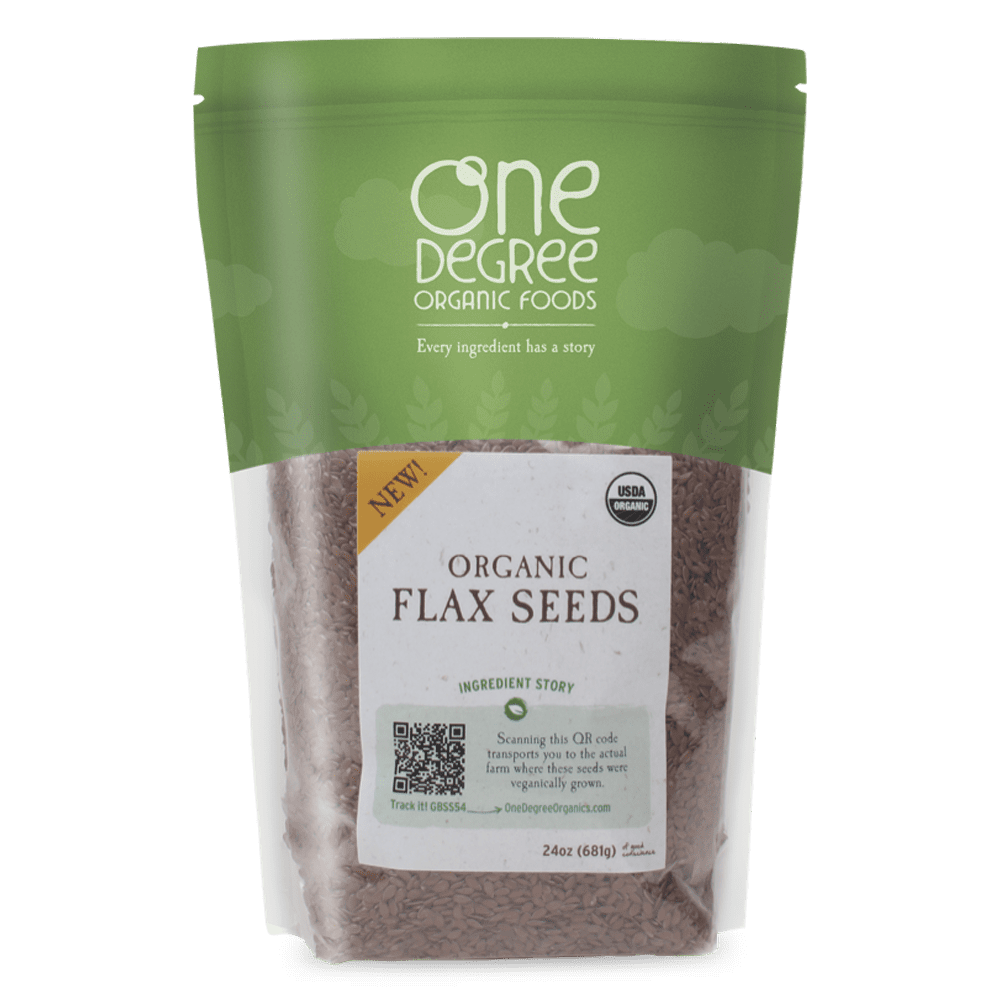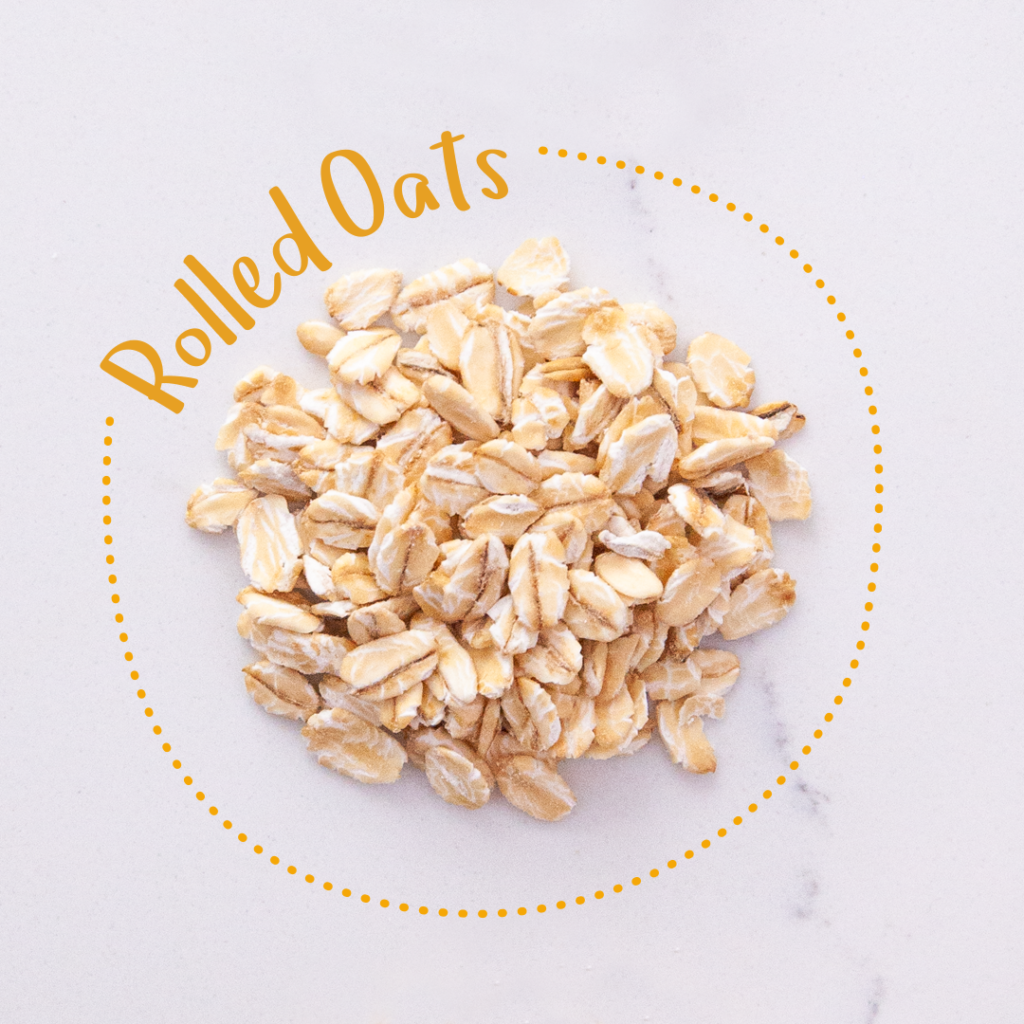Sprouted Oats FAQs: Questions & Answers About Sprouted Oats
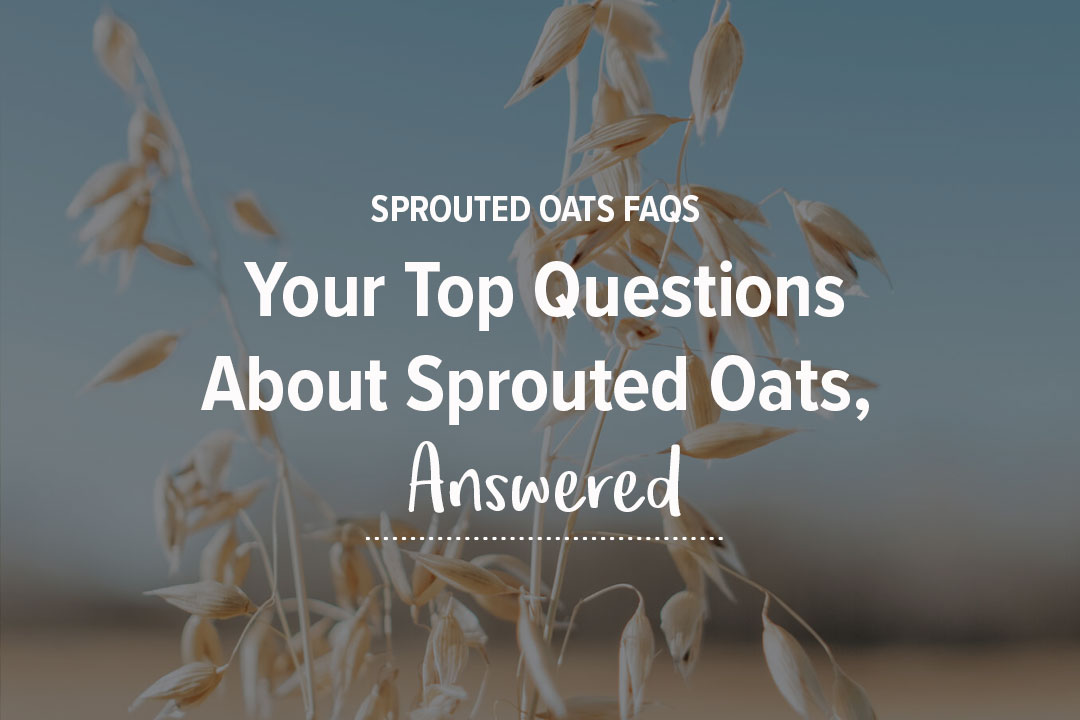
Your Top Questions About Sprouted Rolled Oats, Sprouted Steel Cut Oats, and Sprouted Quick Oats—and the Answers to Go With Them
At One Degree Organics, we get a lot of questions about sprouted oats. Frequently asked questions range from “What does sprouted oats mean?” to “Do I have to cook sprouted oats differently than regular oats?” to “Why are sprouted oats better?” and dozens of smart and curious questions in between.
That’s why we’ve gathered our top sprouted oats questions here—in our Sprouted Oats FAQs—so you can find all the answers you need to know on why you should choose sprouted oats, which style of sprouted oats is best for the recipe you want to make, how to cook sprouted oats, how to store sprouted oats, and more!
Because we love sprouted oats, and we want you to have all the information, answers, and insight to fall in love with our organic sprouted oats, too!
In this sprouted oats FAQs article:
- What’s the difference between:
- How to cook sprouted rolled oats, sprouted steel cut oats, and sprouted quick oats:
- How to store sprouted oats:
- Growing and processing:
- Raw vs uncooked sprouted oats:
- Why you can trust One Degree Organics sprouted oats:
Sprouted oats vs unsprouted oats
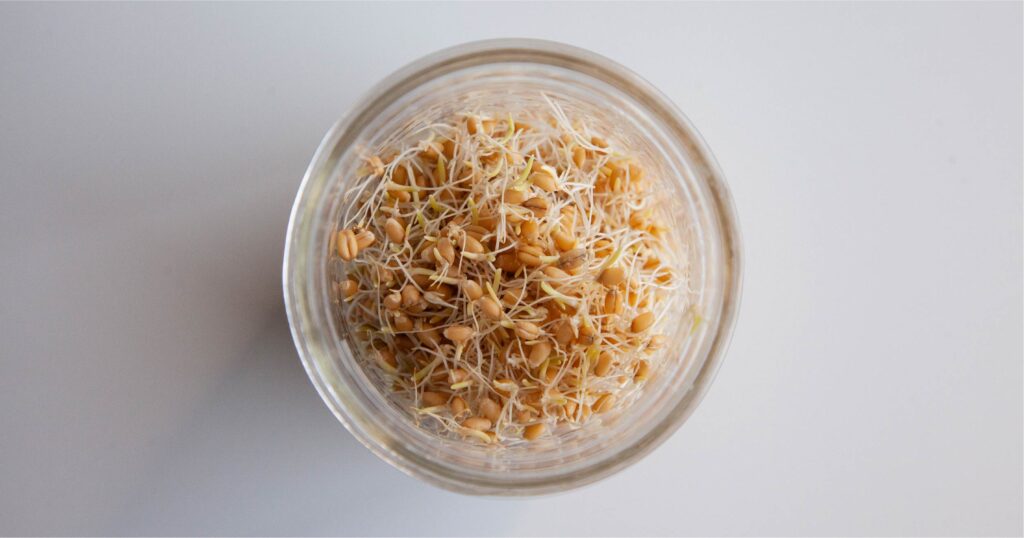
Q: What is the difference between sprouted oats and regular oats (unsprouted oats)?
A: All whole grain oats—sprouted oats or unsprouted oats—are filled with cholesterol-lowering, heart-healthy beta-glucan oat fiber[1]. But are sprouted oats the same as regular oats? No. Sprouted oats are healthier! Sprouted oats are higher in magnesium[2] and GABA[3], and lower in antinutrient phytates[4] which makes other vitamins and nutrients more bioavailable. And sprouted oats are higher in protein and insoluble fiber, too[5].
What makes sprouted rolled oats different from regular rolled oats? (Or sprouted steel cut oats different from regular steel cut oats?) And why are sprouted oats better? The answer comes down to a single step: sprouting.
Q: How does sprouting make sprouted oats better?
A: While all the basic processing steps that take freshly-harvested oats from field to a bag of rolled oats or steel cut oats are the same, sprouting is the step that makes the difference. Sprouting oats activates endogenous enzymes in the grain, helping to break down proteins, starches, and fiber into forms that are easier to digest—and easier for your body to use.
Q: What are the benefits of sprouted oats?
A: Why eat sprouted oats? To learn more about the benefits of sprouted oats—and why sprouted oats are better for you—check out our article “Sprouted Grains: The Benefits of Sprouting—Everything You Need to Know” (read the whole thing, or scroll to the How Sprouting Brings Out the Best in Our Favorite Whole Grains section to get to the sprouted oats part).
back to Sprouted Oats FAQs top
Sprouted rolled oats vs sprouted steel cut oats
Q: What is the difference between sprouted rolled oats and sprouted steel cut oats?
A: Here’s how sprouted rolled oats vs sprouted steel cut oats are made:
No matter what style of sprouted oats you choose, all sprouted oats start the same way. After a batch of oats passes a first round of quality checks, they are rinsed before they are soaked and sprouted using One Degree Organics’ proprietary sprouting process. Once they’re sprouted, the oats are stabilized with steam, and the hard, inedible husk (or hull) is removed, and the oats are dried, cleaned, and sorted before they go on to the next step to become sprouted rolled oats or sprouted steel cut oats.
For sprouted rolled oats, cleaned and dried sprouted whole oats are gently steamed a second time to soften them, then put through a roller to get the classic old-fashioned oat shape.
For sprouted steel cut oats, cleaned and dried sprouted whole oats are run through a groat cutter (sometimes called a granulator) with steel blades to get the coarse texture steel cut oats are known for.
How to use sprouted rolled oats vs sprouted steel cut oats
Just like regular oats, each style of sprouted oats has a unique texture and cook time that makes rolled oats the best choice for some recipes, and steel cut oats better for another. Whether you choose sprouted rolled oats or sprouted steel cut oats depends on what you are making with them!
What to make with sprouted rolled oats:
How to use sprouted rolled oats in baking and breakfast recipes
Sprouted rolled oats have the classic rolled oat texture beloved by bakers. Sprouted rolled oats hold their shape in batters and can be cooked or baked into a range of chewy or crispy textures, just like regular rolled oats. Use sprouted rolled oats in cookies, muffins, bars, bread, fruit crisps or crumbles, granola, baked oatmeal, overnight oats, or any sweet or savory recipe that calls for rolled oats or old-fashioned oats.
Use sprouted rolled oats to make oatmeal with more texture than oatmeal made with near-instant quick oats, and with faster cooking time than heartier steel cut oats.
What to make with sprouted steel cut oats:
How to use sprouted steel cut oats in breakfast and other recipes
Sprouted steel cut oats have the same texture of regular steel cut oats. Because the oat groats are simply chopped, the thicker grain size of sprouted steel cut oats means they take longer to cook compared to sprouted rolled oats and have a chewier texture.
Prized in hearty oatmeal and porridge recipes, you can use sprouted steel cut oats to make savory, risotto-inspired meals and other satisfying dishes. Use sprouted steel cut oats in any recipe that calls for regular steel cut oats or Irish oats.
Sprouted rolled oats nutrition vs sprouted steel cut oats nutrition
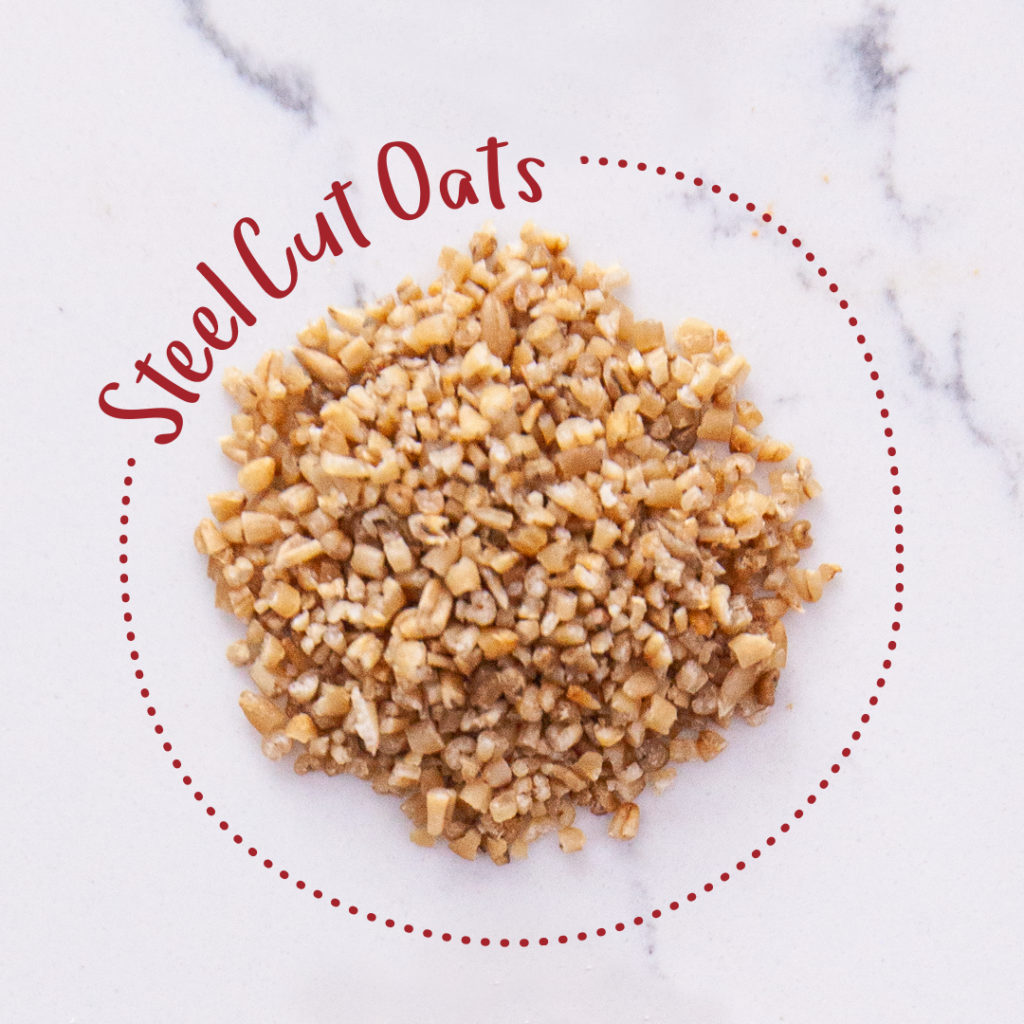
Q: Are sprouted steel cut oats better for you than sprouted rolled oats?
A: Because they are made from the same sprouted whole oat grain, all sprouted oats—sprouted steel cut, sprouted rolled oats, or sprouted quick oats—are nutritionally equal. All sprouted oats are steamed and gently oven dried. The only difference is the shape and thickness of the finished product and how long they take to cook. Gram for gram, all sprouted oats have the same nutrition.
Q: If all styles of sprouted oats are nutritionally equal, why do sprouted steel cut oats have a smaller serving size?
A: All styles of sprouted oats are made from the same sprouted whole grain oats. After they are sprouted, steamed, dried, and the inedible husks are removed, the only difference between sprouted rolled oats and sprouted steel cut oats or sprouted quick oats is the shape and particle size of the final product.
Nutritionally, nothing more or less is lost in processing, whether sprouted whole oats are chopped with a steel blade or rolled into flakes. So your choice of sprouted oat styles is simply a matter of what you are making with them, how much time you have to cook, or what texture you prefer in your recipe. (Keep reading to the next question to learn why the serving sizes are different).
Q: Why are there more calories in a serving of sprouted steel cut oats than in a serving of sprouted rolled oats or sprouted quick oats?
A: Serving sizes for packaged foods are dictated by US FDA and CFIA nutrition labeling regulations, based on the amount typically eaten in one sitting. Because rolled oats and steel cut oats tend to be prepared differently, the serving size for steel cut oats shown on our nutrition facts panel is larger (45 g serving for steel cut oats vs 35 g servings for rolled oats and quick oats).
Compared gram-for-gram, the nutrition and calorie values for sprouted steel cut oats vs sprouted rolled oats vs sprouted quick oats are virtually identical. And that means you can enjoy whatever style of sprouted oats you like best or feel like making any day of the week!
Q: Are sprouted steel cut oats healthier?
A: Compared to regular unsprouted steel cut oats, yes—because they are sprouted! But compared to other sprouted whole grain oats, sprouted steel cut oats are just as healthy and nutrient dense gram-for-gram as sprouted rolled oats and sprouted quick oats.
back to Sprouted Oats FAQs top
Sprouted rolled oats vs sprouted quick oats
Q: What is the difference between sprouted rolled oats and sprouted quick oats?
A: All sprouted oats start the same way, whether they become sprouted rolled oats or sprouted quick oats. Once a batch of fresh oats clears its first round of quality checks, the oats are rinsed before we soak and sprout them using One Degree Organics’ proprietary sprouting process. Once the oats have sprouted, they are steam stabilized, and dehulled to remove the hard, inedible husk. Then the sprouted oats are dried, cleaned, and sorted before they are ready to be processed into sprouted rolled oats or sprouted quick oats.
For sprouted rolled oats, clean and dry sprouted whole oats get a second round of gentle steaming to soften them so they can be put through a roller to get the classic old-fashioned oat shape.
Sprouted quick oats begin with sprouted steel cut oats! First, cleaned and dried sprouted whole oats go through the steel blades of a groat cutter (sometimes called a granulator) to break the groats into the signature steel cut oat shape. To turn sprouted steel cut oats into sprouted quick oats, the sprouted steel cut oat pieces are steamed a second time—just like the whole sprouted oats used to make rolled oats—so they’re soft and ready to go through the roller. The result? Smaller quick oat style sprouted oats for speedy cooking!
How to use sprouted rolled oats vs sprouted quick oats
Each style of sprouted oats has a unique texture and cook time that makes sprouted rolled oats the best choice for some recipes and sprouted quick oats the best choice for another—just like regular oats! So, choosing sprouted rolled oats or sprouted quick oats simply depends on what you want to make with them!
What to cook with sprouted rolled oats:
How to use sprouted rolled oats in your favorite breakfast and baking recipes
Sprouted rolled oats have the classic rolled oat texture beloved by bakers. Sprouted rolled oats can be cooked or baked into a range of chewy or crispy textures and hold their shape in batters the same way regular rolled oats do. Use sprouted rolled oats in cookies, fruit crisps or crumbles, bake them in your favorite muffins, bread, granola, or baked oatmeal, use them to make overnight oats or oat milk, or in any sweet or savory recipe that calls for regular rolled oats or old-fashioned oats.
Use sprouted rolled oats to make oatmeal that cooks faster than hearty steel cut oats but have more time than the near-instant speed of quick oats.
What to make with sprouted quick oats:
How to use sprouted quick oats in baking, batters, and other recipes
Sprouted quick oats have the same texture of regular quick oats. The smaller flakes of sprouted quick oats mean this style cooks faster than either sprouted rolled oats or sprouted steel cut oats. And you get a smoother, creamier spoonful when you use sprouted quick oats for your morning oatmeal or porridge.
Use sprouted quick oats any time you need oats at near-instant speed or want to add the goodness of oats to a dish, but don’t want the heartier texture of sprouted rolled oats. Sprouted quick oats disappear deliciously into smoothies, crepe or pancake batters, energy balls, bites, or bars, crackers, or delicate crusts where subtle, smooth, or soft texture is the name of the game. Use sprouted quick oats in any recipe that calls for quick oats or unflavored and unsweetened instant oats.
Sprouted rolled oats nutrition vs sprouted quick oats nutrition
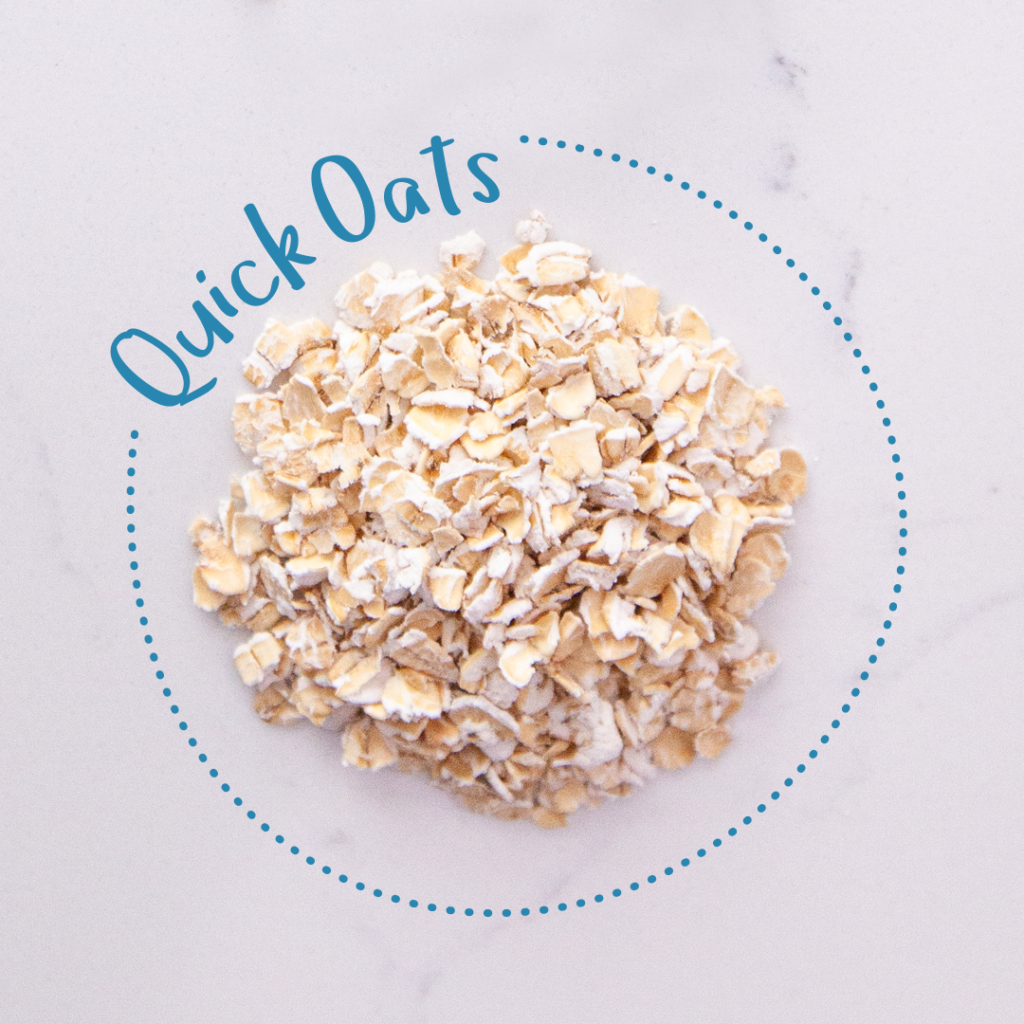
Q: Are sprouted rolled oats better for you than sprouted quick oats?
A: All sprouted oats—sprouted rolled oats, sprouted quick oats, or sprouted steel cut oats—are nutritionally equal because all styles of oat are made from the same sprouted whole oat grain.
Whether your recipe calls for sprouted rolled oats, you prefer the speed of quick oats, or you crave a bowl of hearty sprouted steel cut oatmeal, all sprouted oats are sprouted, steam stabilized, dehulled, and gently oven dried before they take their finished form through gentle heat and mechanical processing steps. The only difference between each style of sprouted oat is the shape and thickness of the finished product and how long they take to cook.
Gram for gram, all sprouted oats offer the same nutrition—so you can choose sprouted rolled oats vs sprouted quick oats knowing you’re getting the same nutrient dense whole grain oat goodness in every bite.
back to Sprouted Oats FAQs top
Sprouted oat cooking instructions: How to cook sprouted rolled oats, sprouted steel cut oats, and sprouted quick oats
Q: How do I cook sprouted oats?
A: Whether you choose our sprouted rolled oats, sprouted steel cut oats, or sprouted quick oats, One Degree Organics Sprouted oats cook just like regular oats of the same style. You can cook sprouted oats on the stove, in the microwave, in a pressure cooker or instant pot, or in a rice cooker using the same oat-to-water ratios and cooking directions you’d use for regular, unsprouted oats.
When it comes to oats, there may be as many ways to make a perfect bowl as there are cooks to make one. But if you don’t have a go-to recipe, or you threw out the bag with the cooking directions, you’ll find our favorite versions of how to cook sprouted oats of every style below. Choose your sprouted oat style and method and get cooking!
Sprouted rolled oat cooking directions
Q: How to cook sprouted rolled oats on the kitchen stove
A: Follow the simple instructions we include on our package to cook perfect sprouted rolled oats on the stovetop every time. Here are the basic ingredients you need to make sprouted rolled oatmeal as a healthy and delicious breakfast:
- 3/4 cup water
- 1/3 cup sprouted rolled oats
- Pinch of salt
Add the pinch of salt to a pot of water and bring to a boil over medium heat. Stir in sprouted rolled oats let them simmer for 5 – 8 minutes or until they reach your desired tenderness, stirring regularly so they don’t stick to the bottom.
Once cooked, remove the saucepan from the heat and let the oats sit for a minute or two before serving. Top with your favorite ingredients like fruit, nuts, or maple syrup and enjoy!
Q: How to cook sprouted rolled oats in the microwave
A: For a quick and easy way to cook sprouted rolled oats, try using your microwave. Gather the following ingredients to make microwave sprouted rolled oatmeal:
- 1/3 cup sprouted rolled oats
- 1/3 cup water
Follow these simple steps to cook perfect sprouted rolled oats in the microwave every time. Grab a microwave-safe bowl and combine your sprouted rolled oats with the water—be sure to use a large bowl because the oats will expand as they cook.
Stir the mixture well, then microwave on high for about 2 minutes or until the oats have reached your desired consistency. (Cooking time may vary as not all microwaves have the same power output—add more time in 30-second increments to avoid overcooking).
Once the oats are cooked, remove the bowl from the microwave and let them sit for a minute or two before serving. Top with your favorite ingredients like berries, seeds, or your favorite plant-based sweetener.
back to Sprouted Oats FAQs top
Sprouted steel cut oat cooking directions
Q: How to cook sprouted steel cut oats on the kitchen stove
A: To cook sprouted steel cut oats on the stovetop, you’ll need:
- 1 cup sprouted steel cut oats
- 2 cups water
- Pinch of salt
Combine sprouted steel cut oats, water, and salt in a medium saucepan. Place saucepan on stove over medium heat and bring mixture to a boil, stirring occasionally.
Reduce heat to low and simmer uncovered, stirring occasionally, for 20 – 25 minutes or until oats are tender and have absorbed most of the water. Remove from heat and let your stovetop sprouted steel cut oatmeal sit for a few minutes before serving.
Top your stovetop sprouted steel cut oatmeal with seeds, nuts, fruit, or whatever you like and enjoy!
Q: How to cook sprouted steel cut oats in the microwave
A: Enjoy sprouted steel cut oats in minutes using your microwave and these simple instructions. To cook sprouted steel cut oats in the microwave you will need:
- 1 cup sprouted steel cut oats
- 2 cups water
- Pinch of salt
Combine your ingredients in a large microwave-safe bowl. Make sure to use a large enough bowl as sprouted steel cut oats will expand quite a bit in the microwave.
Stir to combine, microwave on high for 5 minutes, stir, and microwave for an additional 3 – 5 minutes or until oats are tender and have absorbed most of the water. (Cooking time may vary depending on the power-rating of your microwave. As your steel cut oats get closer to being cooked to the texture you prefer, add more time in 30-second increments).
Let oats sit for a few minutes before serving, top your microwave sprouted steel cut oatmeal as you like it, and enjoy.
Q: How to cook sprouted steel cut oats in a rice cooker
A: You can use a rice cooker’s porridge setting to cook sprouted steel cut oats with none of the pot-watching fuss of the stove or even the microwave. Even better? If your rice cooker has a timer, set it before bedtime to wake up to a hearty bowl of sprouted steel cut oats waiting for you!
To cook sprouted steel cut oats in a rice cooker, gather the following ingredients:
- 1 rice cooker cup sprouted steel cut oats (3/4 cup / 180 ml in standard kitchen measures)
- 3 ½ rice cooker cups water (2 2/3 cups / 630 ml in standard kitchen measures)
Add your ingredients to the rice cooker, select the porridge setting, and turn it on (or set the timer for the morning!). When the rice cooker completes its cooking cycle, stir the oats and let oats sit for a few minutes before serving your rice cooker sprouted steel cut oatmeal with your favorite toppings.
Tip: Rice cooker sprouted steel cut oats are tasty plain, but you can also add berries, diced mango, apples, or other fruit, and seasonings like vanilla or cinnamon to the pot before cooking to really seal in the flavor.
Q: How to cook sprouted steel cut oats in an Instant Pot
A: Cooking sprouted steel cut oats in an Instant Pot or automated pressure cooker is a quick and easy way to prepare a healthy breakfast. Gather up the following ingredients to make Instant Pot sprouted steel cut oatmeal:
- 2 cups sprouted steel cut oats
- 4 cups water
- Pinch of salt
Add your ingredients to the Instant Pot and make sure the release valve is in the “Sealing” position. Cover with the lid and lock. Cook on high pressure for 6 minutes, then allow pressure to naturally release for 15 minutes. Allow oats to sit up to 10 minutes before serving to make sure the water is completely absorbed.
back to Sprouted Oats FAQs top
Sprouted quick oat cooking directions
Q: How to cook sprouted quick oats on the kitchen stove
A: Making sprouted quick oats on the stove is easy to do with these step-by-step instructions. To cook sprouted quick oats on the stovetop, you need three basic ingredients:
- 1 cup sprouted quick oats
- 1 ½ cups water
- Pinch of salt
Mix your ingredients into a medium saucepan and bring to a boil, then reduce heat and simmer, stirring occasionally, for 5 – 7 minutes or until oats are tender.
Let your sprouted quick oats oatmeal sit for a few minutes before serving, and top with your favorite fruits, berries, or nuts.
Q: How to cook sprouted quick oats with hot water or hot non-dairy milk
A: Our sprouted quick oats can be cooked with the same just-add-water instructions as our flavored Instant Oatmeals. You can them using either hot water or hot non-dairy milk. Here are the ingredients you need to make oatmeal with sprouted quick oats using only hot water or hot plant-based milk:
- 1/3 cup sprouted quick oats
- ½ cup hot water or hot plant-based milk
To cook sprouted quick oats with hot water or hot non-dairy milk, pour oats into a small bowl and add hot water or hot non-dairy milk (your preference). Stir well and let stand for 3 minutes. Stir again and enjoy this simple and delicious breakfast option with your favorite oatmeal toppings.
Q: How to cook sprouted quick oats in the microwave
A: You can cook sprouted quick oats in the microwave—and it only takes a minute! All you need to make microwave sprouted quick oat oatmeal is:
- 1/3 cup sprouted quick oats
- ½ cup water or non-dairy milk
To cook sprouted quick oats in the microwave, pour oats into a small bowl and add your choice of water or non-dairy milk. Stir well and microwave on high for about 1 minute. Stir again and enjoy!
back to Sprouted Oats FAQs top
What sprouted oats should I use for overnight oats?
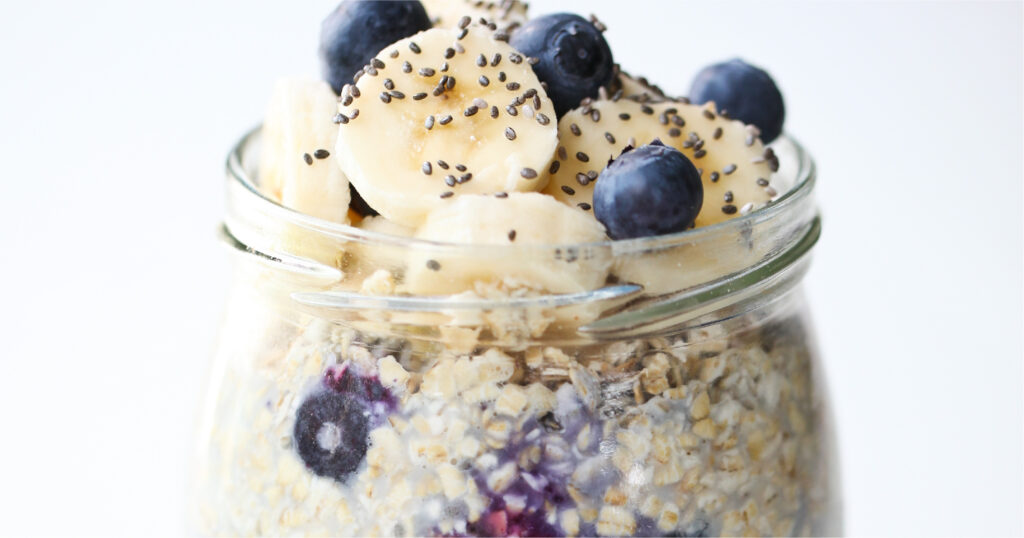
Q: Can I use sprouted rolled oats to make overnight oats?
A: Yes! Sprouted rolled oats are an excellent choice for any overnight oats recipe. Make a few jars of overnight oats with sprouted rolled oats for busy weekday mornings and start your day with a wholesome, no-cook breakfast with all the nutritional goodness of oats.
Basic overnight oats offer a blank canvas for toppings and fillings that add flavor and variety to a creamy, plant-based base with a soft but satisfying oaty texture. Start with:
- 1/2 cup sprouted rolled oats
- 1 cup plant-based milk
- 1 Tbsp maple syrup (or another plant-based sweetener you like, to taste)
Mix all ingredients in a jar or container with a lid and place in the fridge overnight. In the morning, top your sprouted rolled oats overnight oatmeal with fresh fruit, nuts, non-dairy yogurt, or a handful of granola and enjoy!
You can swap the sweetener for mashed banana, add a tablespoon of chia seeds to your mix, or add vanilla, cinnamon, or a pinch of salt for extra flavor. Check out this Overnight Oatmeal Parfait recipe for inspiration!
Q: Can I use sprouted quick oats to make overnight oats?
A: Yes, you can make overnight oats with sprouted quick oats! Compared to overnight oatmeal made with sprouted rolled oats that bring tender chew and texture the table, sprouted quick oats make a smooth and creamy batch of overnight oats that’s sure to please.
To make overnight oats from sprouted quick oats, start with this simple base recipe:
- 3/4 cup sprouted quick oats
- 1 ½ cups plant-based milk
- 1 Tbsp maple syrup (or another plant-based sweetener you like, to taste)
In a jar or container with a lid, mix your ingredients—or seal up your jar and shake!—and place in the fridge overnight. Before you dig in, top with seeds, nuts, berries, or chopped fruit and enjoy. Try our Blueberry Chia Overnight Oats recipe for a flavorful entry into a world of fast, easy, overnight quick oats oatmeal breakfasts that start with a scoop of sprouted quick oats.
back to Sprouted Oats FAQs top
Can sprouted oats be used in place of unsprouted oats?
Q: Can I use sprouted rolled oats instead of rolled oats?
A: Yes! Sprouted rolled oats can be swapped for regular oats in any recipe that calls for rolled oats. You can use sprouted rolled oats as a one-to-one substitute for regular rolled oats. Whatever method you use, the cooking directions for sprouted rolled oats are identical to regular rolled oats and sprouted rolled oats will perform the same as rolled oats in any dish.
Q: Can I use sprouted rolled oats instead of old-fashioned oats?
A: Yes! Old-fashioned oats are just another name for rolled oats, so you can use sprouted rolled oats in any recipe that calls for old-fashioned oats.
Q: Can I use sprouted steel cut oats instead of steel cut oats?
A: Yes! You can swap sprouted steel cut oats for unsprouted oats in any recipe that calls for steel cut oats. Sprouted steel cut oats can be used as a one-to-one substitute for regular steel cut oats. Whether you cook them sprouted steel cut oats on the stovetop, in your rice cooker or instant pot, or in the microwave, the cooking directions for sprouted steel cut oats are identical to regular steel cut oats. Sprouted steel cut oats will perform just like steel cut oats in any dish.
Q: Can I use sprouted steel cut oats instead of Irish oatmeal?
A: Yes! Irish oatmeal is simply another name for steel cut oats, so you can use sprouted steel cut oats in any recipe that calls for Irish oats.
back to Sprouted Oats FAQs top
Sprouted oat shelf life and sprouted oat storage instructions:
Q: How should I store sprouted oats?
A: The best way to store sprouted oats is in an air-tight container. You can store your sprouted rolled oats, sprouted steel cut oats, or sprouted quick oats in their One Degree Organics resealable bag. Or you can transfer them to any glass, metal, ceramic, or plastic container with a tight-fitting lid that fits in your pantry.
Q: Should I store sprouted oats in the fridge?
A: One Degree Organics sprouted oats are shelf stable at room temperature for one year from the date of manufacture—so you do not need to store your sprouted oats in the fridge to keep them fresh.
However, storing sprouted oats in the fridge—or freezer—won’t hurt them. If you live in a particularly hot, humid climate, go ahead and store your sprouted oats in an air-tight container in your fridge if you prefer. Or if you shop for sprouted oats in larger volumes less often, it is okay to store sprouted oats in your freezer in an air-tight container to keep them fresh for longer, too.
Q: How long do sprouted oats last once the bag is opened?
A: From the date of manufacture, One Degree Organics sprouted oats have a shelf-life of one year. Stored in a sealed package or in an air-tight container, sprouted oats are good until the Best Before date stamped on the bag.
How long sprouted oats last once the bag is opened depends on when the package was opened relative to the Best Before date, and how they are stored after the bag was opened.
Storage conditions and climate can influence how long sprouted oats stay fresh. For example, if you live somewhere particularly hot and humid, and you store your sprouted oats in a container with a loose-fitting lid or leave the bag unsealed, they may not stay fresh as long.
Although the Best Before date is not an expiry date, it is the date to which One Degree Organics can guarantee freshness. Stored correctly in an air-tight container, your sprouted oats may be usable for many weeks or months beyond the Best Before date.
Q: How can you tell if your sprouted oats are still good beyond the Best Before date?
(Or how can you tell if your sprouted oats are still good if you threw out the package and are unsure how old they are?)
A: Fresh oats—and sprouted oats that are still good to eat—will be dry, have a neutral taste, and a delicately sweet, almost nutty smell.
Q: Do sprouted rolled oats go bad?
A: Yes, sprouted rolled oats can spoil due to time, storage conditions, or a combination of both. One Degree Organics sprouted oats are guaranteed shelf-stable until the Best Before date printed on the package (one year after the date of manufacture) if stored correctly in a sealed bag or air-tight container.
Q: How can you tell if sprouted oats have gone bad?
A: Give them a sniff! Spoiled oats (sprouted oats or regular oats of any style) will have a distinct rancid smell that some people describe as paint-like. If your sprouted oats smell off—or if you can see signs of mold, dark spots, or moisture—it’s best to toss them in your compost bin and pick up a fresh bag on your next trip to the store.
back to Sprouted Oats FAQs top
How are sprouted oats made and processed?
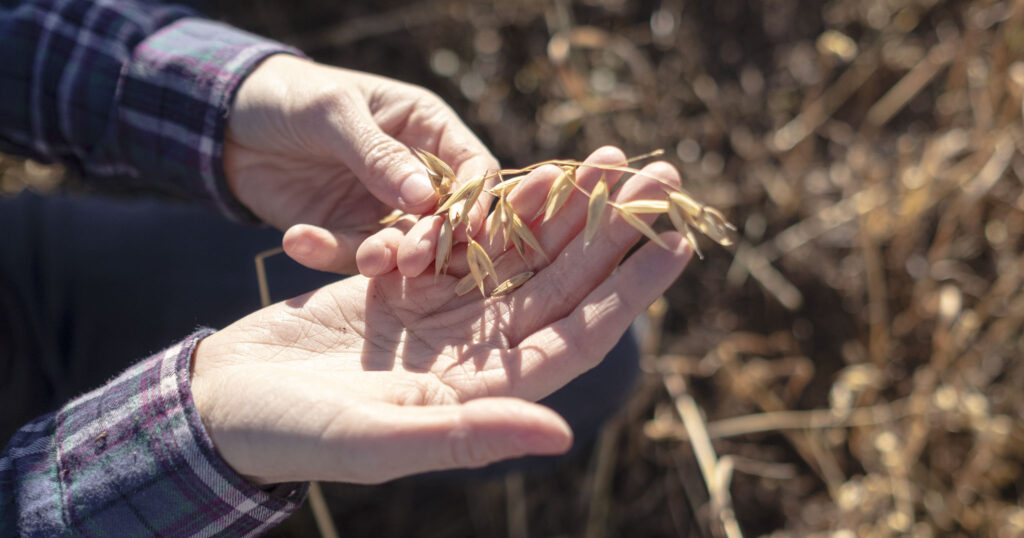
Q: How are One Degree Organics sprouted oats processed to make them shelf-stable?
How do you stabilize One Degree Organics sprouted oats? Do you use any chemicals in processing?
A: One Degree Organics sprouted oats are stabilized using steam to deactivate the lipase enzyme that causes the lipids (fats) in untreated oats to go rancid. No chemicals or other agents beyond steam and gently oven-drying are used to make our sprouted oats shelf-stable.
Where do your sprouted oats come from?
Q: Where are the oats for One Degree Organics sprouted oats grown?
A: The oats One Degree Organics uses to make our sprouted oats are grown by a network of organic farmer partners located in Canada’s prairie provinces, specifically in northern Alberta. It is one of our greatest pleasures to work with these farmers and bring you the highest quality sprouted oats in the world.
The region of northern Alberta our plant-based organic oats come from is known for its ideal growing conditions and a community of farmers who are dedicated to producing the best oats using sustainable and environmentally friendly methods. Learn more about why where our organic oats are grown matters—read our article on the secrets behind the best oats here.
How are your sprouted oats grown?
Q: What is different about how the oats for One Degree Organics sprouted oats are grown?
A: One Degree Organics sprouted oats are special because they are grown by farmers who share our passion and values for organic farming and are committed to producing the highest quality oats. Our sprouted oats are grown using unique veganic farming practices that prioritize the health of the soil and the environment.
Veganic—also known as plant-based organic—farming practices include using plant-based fertilizers and avoiding the use of animal manures, synthetic chemicals, and genetically modified seeds. We also use regenerative agriculture techniques that aim to improve soil health and biodiversity. Click here to learn more about how One Degree Organics sprouted oats are different from the rest.
back to Sprouted Oats FAQs top
Raw vs uncooked sprouted oats: Are sprouted oats safe to eat uncooked?
Q: Can I eat sprouted oats raw?
A: If by raw you mean oats directly from the package that you have not cooked yourself, the answer is yes! You can eat sprouted rolled oats raw, because they are already cooked by the time they reach the bag you bought them in.
All whole grain oats—sprouted or unsprouted—must be steamed before rolling and oven dried before they are packaged. Why? Because oats have one of the highest lipid (fat) content of any grain. And they contain an enzyme called lipase that causes those lipids to oxidize and break down.
Fresh from the field and untreated, whole grain oats go rancid faster than other grains because of this high lipid and lipase combination. Steaming whole grain oats deactivates the lipase to make them shelf-stable.
Because all oats sold commercially are steamed in processing, they are safe to enjoy without further cooking in no-bake recipes for cookies, bars, energy balls, and overnight oats with no risk of foodborne illness from oats as an ingredient. So go ahead and eat sprouted rolled oats and sprouted quick oats right out of the bag in whatever no-cook oat recipe you like!
(Although sprouted steel cut oats are also perfectly safe to eat out of the bag, you may find them on the crunchy side to enjoy without further cooking or grinding!)
back to Sprouted Oats FAQs top
Why you can trust One Degree Organics sprouted oats:
Gluten-free sprouted oats, peanut-free, tree nut-free sprouted oats, glyphosate-free sprouted oats and our certifications

Are sprouted oats naturally gluten-free?
Q: Are One Degree Organics sprouted oats gluten-free?
A: Yes, One Degree Organics sprouted oats—including our sprouted rolled oats, sprouted steel cut oats, and sprouted quick oats—are gluten-free.
Q: How do you make sure One Degree Organics sprouted oats are gluten-free?
A: We take multiple steps to ensure that our sprouted oats are free from gluten contamination, including working with farmer partners who use geographic separation and mechanically separating the oats from other grains.
We then test the oats using the gold standard ELISA test to ensure they meet the Canadian and American standard of less than 20 ppm of gluten as determined by all major gluten-free certification programs.
Q: Who certifies One Degree Organics sprouted oats gluten-free? What gluten-free certifications do you use for your sprouted oats?
A: One Degree Organics sprouted oats are certified through Gluten-free Certification Program, Beyond Celiac, and the Canadian Celiac Association, depending on the country of sale. These organizations rigorously test and certify our gluten-free sprouted oats using sensitive gluten detection methods.
One Degree Organics sprouted oats are a safe and delicious choice for those with gluten sensitivities or celiac disease.
back to Sprouted Oats FAQs top
Are sprouted oats glyphosate free?
Q: Are One Degree Organics sprouted oats tested for glyphosate?
A: Glyphosate is an herbicide that is also commonly used as a drying agent on conventional oat crops before harvest. Because One Degree Organics sprouted oats are certified organic, glyphosate cannot be used when they are grown or harvested, but we understand that glyphosate can drift from other farms and contaminate groundwater. That’s why we go above and beyond to ensure our sprouted oats are glyphosate free.
All One Degree Organics sprouted oats are tested for glyphosate and certified glyphosate free.
Q: Who certifies One Degree Organics sprouted oats glyphosate-free?
A: We have our oats third-party tested and BioChecked Non-Glyphosate Certified to ensure the sprouted rolled oats, sprouted quick oats, and sprouted steel cut oats we make with them are free from glyphosate. You’ll find the BioChecked Non-Glyphosate Certified logo on our packaging, as well as our own glyphosate-free icon.
back to Sprouted Oats FAQs top
Are your sprouted oats tested for allergens?
Q: Are One Degree Organics sprouted oats peanut- or tree nut-free?
A: Yes! We are proud to confirm that One Degree Organics sprouted oats are made in a peanut and tree nut-free facility, so you can be sure our sprouted quick oats, sprouted steel cut oats, and sprouted rolled oats are peanut- and tree nut-free!
For complete allergen information for our other products, including our Instant Oatmeals, check out the answer to “Are One Degree Organics products peanut- and/or tree nut-free?” on our general FAQ page.
back to Sprouted Oats FAQs top
Although we hope this page has the answers to all your questions about sprouted oats, if we’ve missed anything—or if you have an infrequently asked sprouted oats question unique to you—we’re here to help! Get in touch and send us your special sprouted oat question on our Contact us page, and we will do our best to get you the answer you need.
Scroll down to subscribe to our monthly newsletter to learn more about the organic, sprouted ingredients we use, meet the farmers who grew them, get inspired by wholesome stories, and discover healthy new recipes for sprouted oats (and more!) And follow us on Facebook, Instagram, and Pinterest, too!
back to Sprouted Oats FAQs top
References
[1] Health Canada, Oat Products and Blood Cholesterol Lowering: Summary of Assessment of a Health Claim about Oat Products and Blood Cholesterol Lowering. Government of Canada, November 2010. Available from: https://www.canada.ca/en/health-canada/services/food-nutrition/food-labelling/health-claims/assessments/products-blood-cholesterol-lowering-summary-assessment-health-claim-about-products-blood-cholesterol-lowering.html, accessed October 19, 2021.
[2] Nkhata, S.G., Ayua, E., Kamau, E.H., Shingiro, J.-B., Fermentation And Germination Improve Nutritional Value Of Cereals And Legumes Through Activation Of Endogenous Enzymes. Food Science & Nutrition, 2018:6:2446-2458, September 21, 2018. Available from: https://onlinelibrary.wiley.com/doi/pdf/10.1002/fsn3.846, accessed December 4, 2019.
[3] Wu, F., Xueming, X., Chapter 7: Sprouted grains-based fermented products, in Sprouted Grains: Nutritional Value, Production, and Applications (Feng, H, Nemzer, B., DeVries, J., editors). AACC International, 2019. Available from: https://www.researchgate.net/profile/Qiong_Qiong_Yang/publication/328450776_Bioactive_compounds_and_beneficial_functions_of_sprouted_grains/links/5be68b7ea6fdcc3a8dcb3cc8/Bioactive-compounds-and-beneficial-functions-of-sprouted-grains.pdf, Accessed September 30, 2020.
[4] Lemmens, E., Moroni, A., Pagand, J., Heiraut, P., Ritala, A., Karlen, Y., Le, K.A., Van den Broeck, H., Brouns, F., De Brier, N., Delcour, J., Impact of Cereal Seed Sprouting on Its Nutritional and Technological Properties: A Critical Review. Comprehensive Reviews in Food Science and Food Safety, 12 Dec. 2018. Available from: https://onlinelibrary.wiley.com/doi/full/10.1111/1541-4337.12414, accessed December 4, 2019.
[5] Nelson, K., Stojanovska, L., Vasiljevic, T., Mathai, M., Germinated Grains: A Superior Whole Grain Functional Food? Canadian Journal of Physiology and Pharmacology, 2013, 91:429-441. Available from: https://www.nrcresearchpress.com/doi/full/10.1139/cjpp-2012-0351, accessed December 4, 2019.
